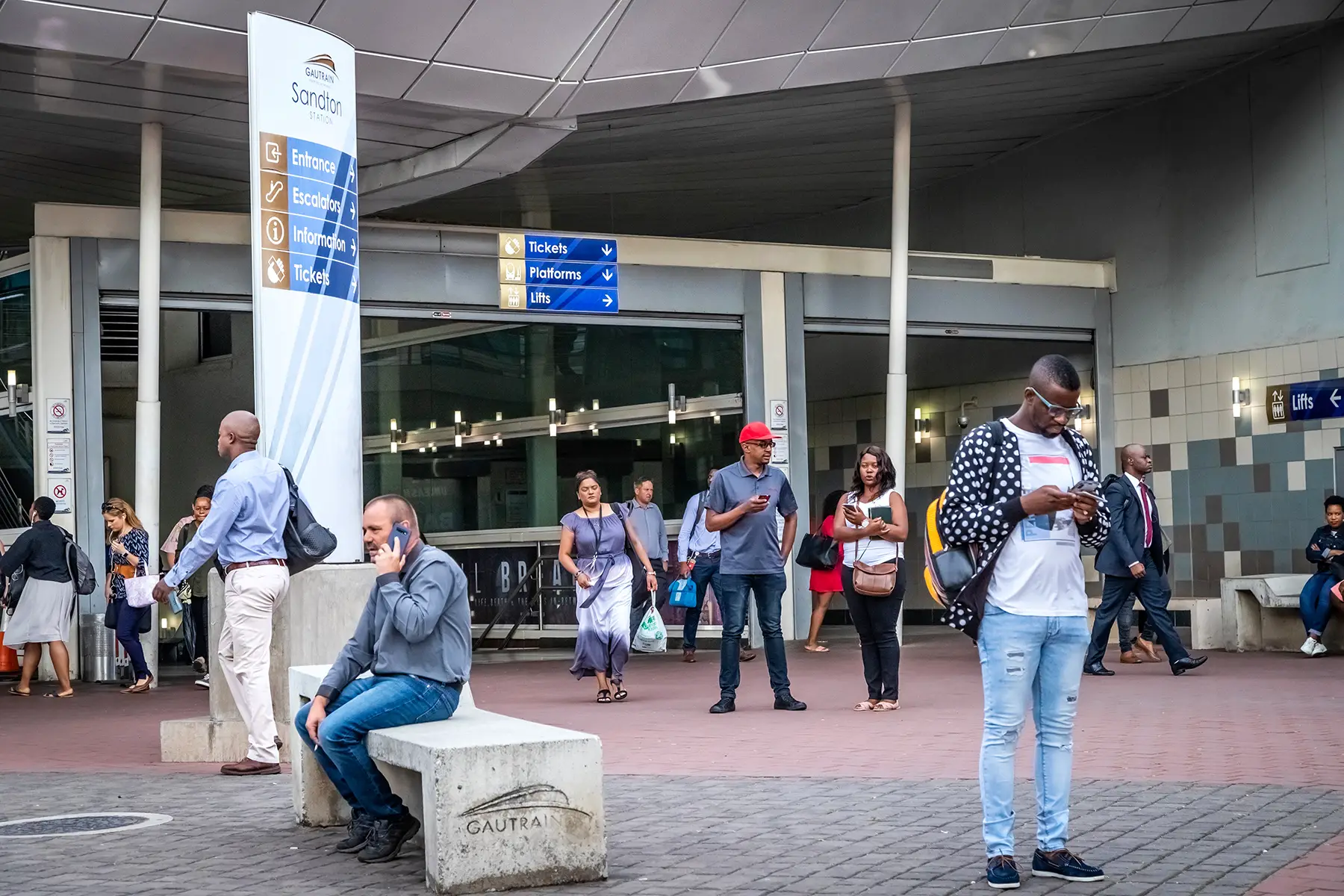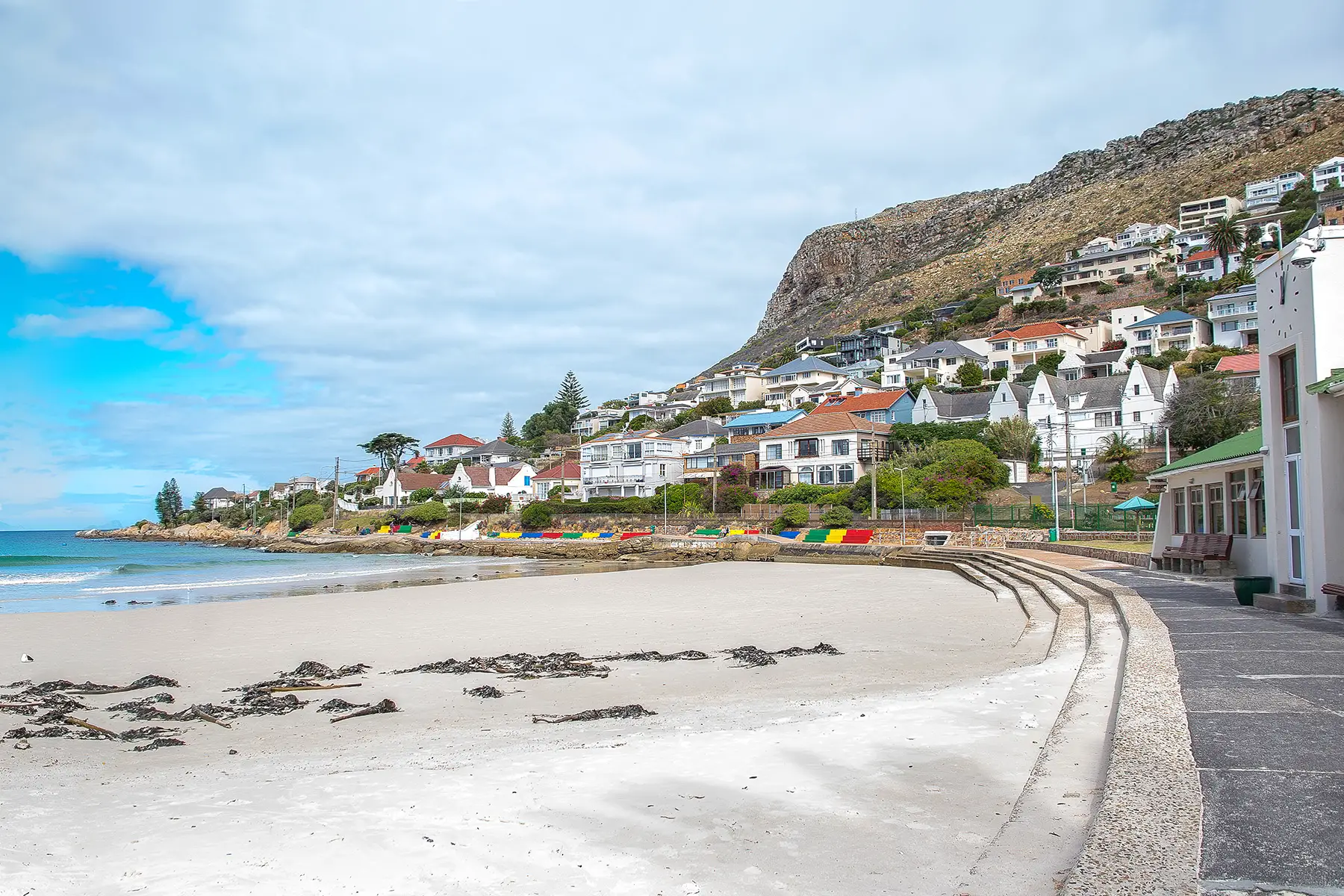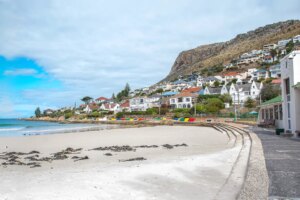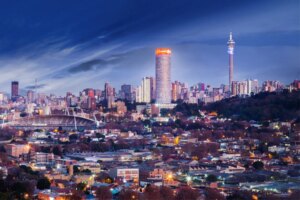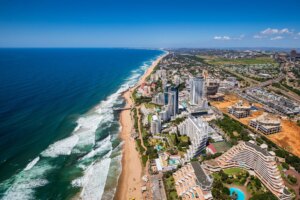Learn about Cape Town’s suburbs and residential neighborhoods, from the nicest and safest areas for expats to those that are best avoided. Buy a house in the area that suits your needs with this handy guide.
This guide includes sections on:
- An overview of Cape Town
- Cape Town’s Atlantic seaboard suburbs
- The Cape Town suburb of City Bowl
- Constantia, Tokai, and Bishopscourt
- The environment in Constantia, Toki, and Bishopscourt
- Facilities in Constantia, Tokai, and Bishopscourt
- Transport in Constantia, Tokai, and Bishopscourt
- Housing in Constantia, Tokai, and Bishopscourt
- Work and business in Constantia, Tokai, and Bishopscourt
- What Constantia, Tokai, and Bishopscourt are best for
- Cape Town’s West Coast
- Hout Bay
- Cape Town’s northern suburbs
- The southern suburbs of Cape Town
- False Bay
- Where to find accommodation in Cape Town
- Neighborhoods to avoid in Cape Town
- Useful resources
Sirelo
It's no secret that moving abroad can be stressful. Sirelo's team of removal advisers is here to help. They provide five free quotes from international shipping companies so you can find the best options at the best prices. Take the stress out of your relocation to South Africa with Sirelo.
An overview of Cape Town
If you’re thinking of joining the 3.7 million people who live here, the good news is that there are many neighborhoods to choose from. While some of South Africa’s cities don’t always have the best reputation in the Western world, Cape Town is widely considered to be one of the best places for expats moving to Africa. The city was ranked third best African city for quality of living in 2018 and it has the second biggest economy in South Africa after Johannesburg.
Located on the Western Cape of South Africa, Cape Town is the country’s oldest urban area and has been influenced by a diverse range of cultures over hundreds of years. Many expats live here and around a quarter of the population speaks English as a first language. The city is known for its harbor as well as landmarks such as Table Mountain and Cape Point. You can also find beautiful natural beaches, many cultural and entertainment activities, and reliable public transportation.
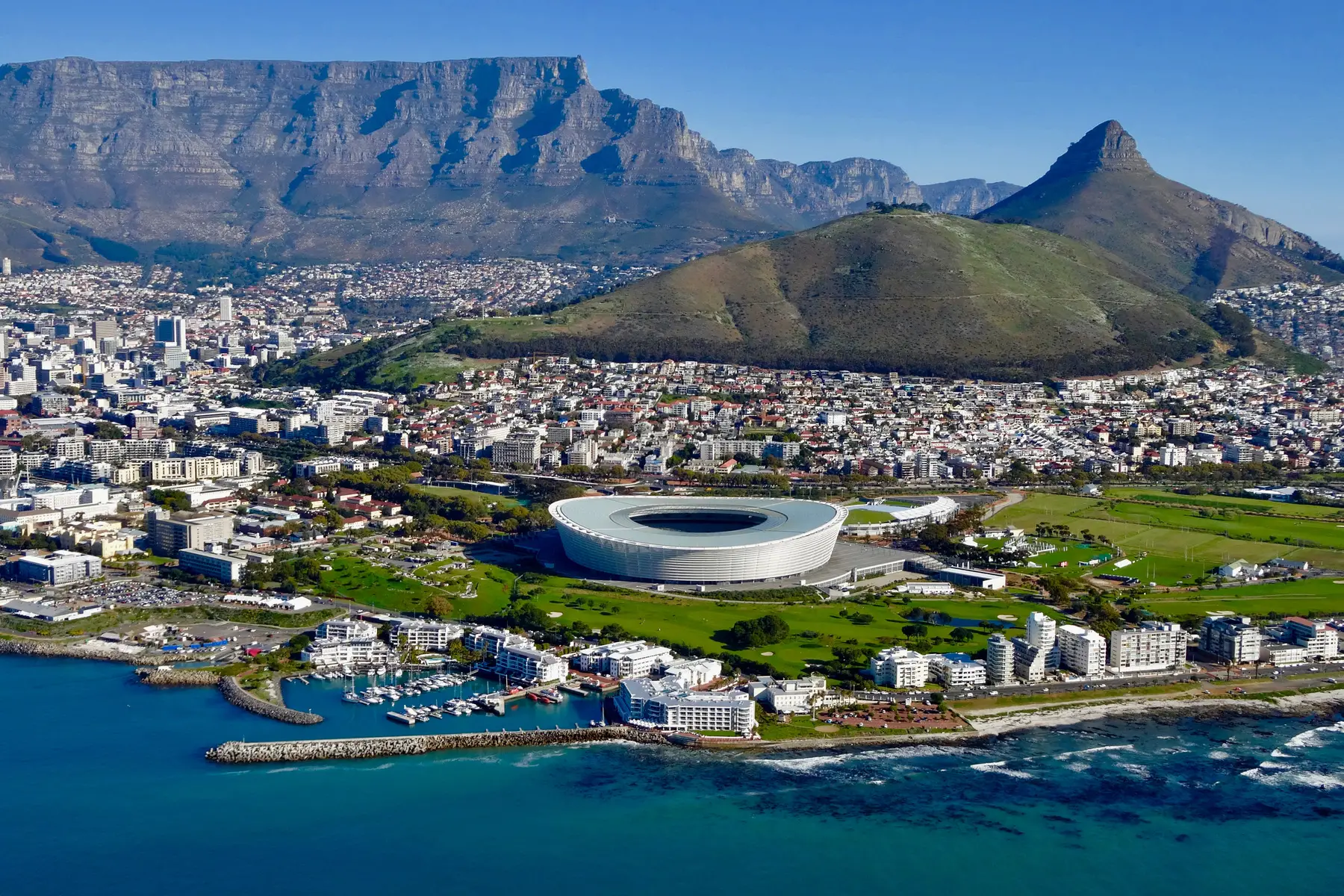
While Cape Town has some beautiful areas, it’s fair to say that some are safer than others. Crime has risen in the East townships in recent years, with some neighborhoods experiencing gang violence. We look at the best Cape Town neighborhoods as well as those to be avoided.
Cape Town’s Atlantic seaboard suburbs
Among the beaches at the bottom of Table Mountain’s imposing western side, you will encounter some of Cape Town’s most desirable neighborhoods including Camps Bay, Bantry Bay, Clifton, Sea Point and Green Point.
The environment in the Atlantic seaboard suburbs
These neighborhoods are popular with wealthy expats who take the opportunity to buy beachside homes and enjoy the high life. This is where you will find amazing beaches, glorious views and some of the most exclusive Cape Town communities. Camps Bay and Clifton are the most upmarket and expensive suburbs, while Sea Point is more densely populated and home to many retirees. Green Point is more popular with young professionals and with Cape Town’s gay and lesbian community.
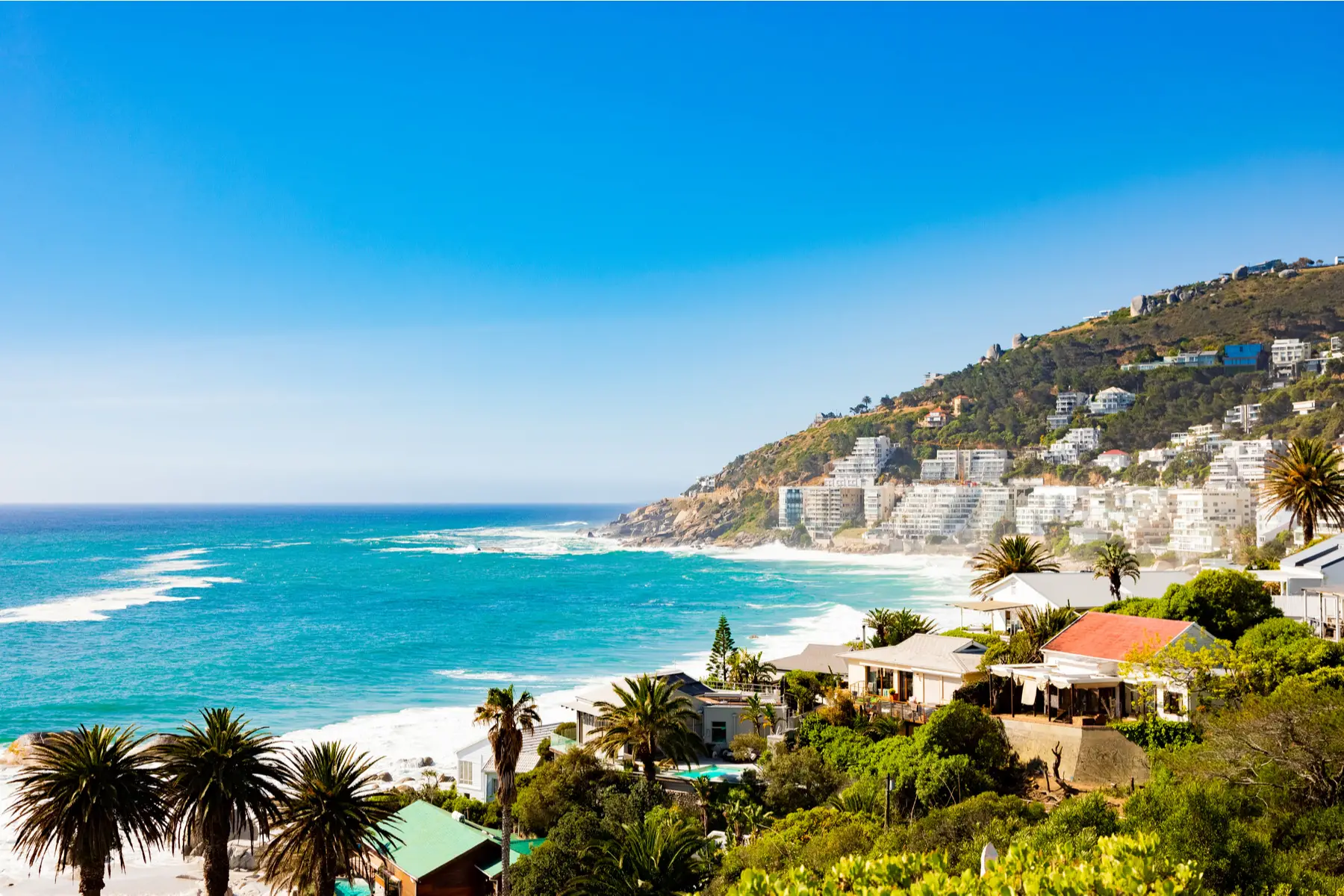
Facilities in the Atlantic seaboard suburbs
Although there isn’t a lot to do for culture vultures here, there are plenty of good facilities and amenities. The Victoria and Albert Waterfront complex is one of the main entertainment hubs, with its shops, bars and restaurants attracting around 23 million visitors a year. The Sea Point promenade is also popular with tourists. The 58,000-capacity Cape Town Stadium is located in Green Point.
Transport in the Atlantic seaboard suburbs
The city center is around 10 minutes away so easily reachable. The MyCiTi bus transit service runs along the entire strip. You can also travel around easily by Uber and there are good scenic walking and cycling routes.
Housing in the Atlantic seaboard suburbs
You can find a variety of accommodation types here including houses, apartments, duplexes and gated developments. Much of the accommodation is grand but comes at a high price, especially in Camps Bay and Clifton. Sea Point is slightly more affordable and is the only part of the Atlantic Seaboard with high-rise apartments.
Work and business in the Atlantic seaboard suburbs
Tourism, retail, hospitality, adventure sports, and food and drink all play a key role in the local economy. Because these neighborhoods attract so many wealthy tourists, they can be good places for entrepreneurs looking to exploit a gap in the market. The thriving city center is close enough for professionals to make the daily commute.
What the Atlantic seaboard suburbs are best for
The beautiful coastline and abundance of scenic beaches make this a great place to retire to if you have the money.
The Cape Town suburb of City Bowl
At the foot of Table Mountain, the City Bowl area combines great mountain views with easy reach of Cape Town’s city center. It’s made up of the Central Business District (CBD) plus several residential suburbs including Oranjezicht, Vredehoek, Gardens and Woodstock.
The environment in the City Bowl
Although the City Bowl is the busy hub of Cape Town, its position nestled in between Table Bay and the mountains means that it also offers many natural delights too. Gardens and Vredehoek are popular with expats while the up-and-coming Woodstock has been compared to New York’s Brooklyn and attracts creatives and young professionals. There are mountain hikes and forest treks aplenty for those who enjoy the great outdoors.
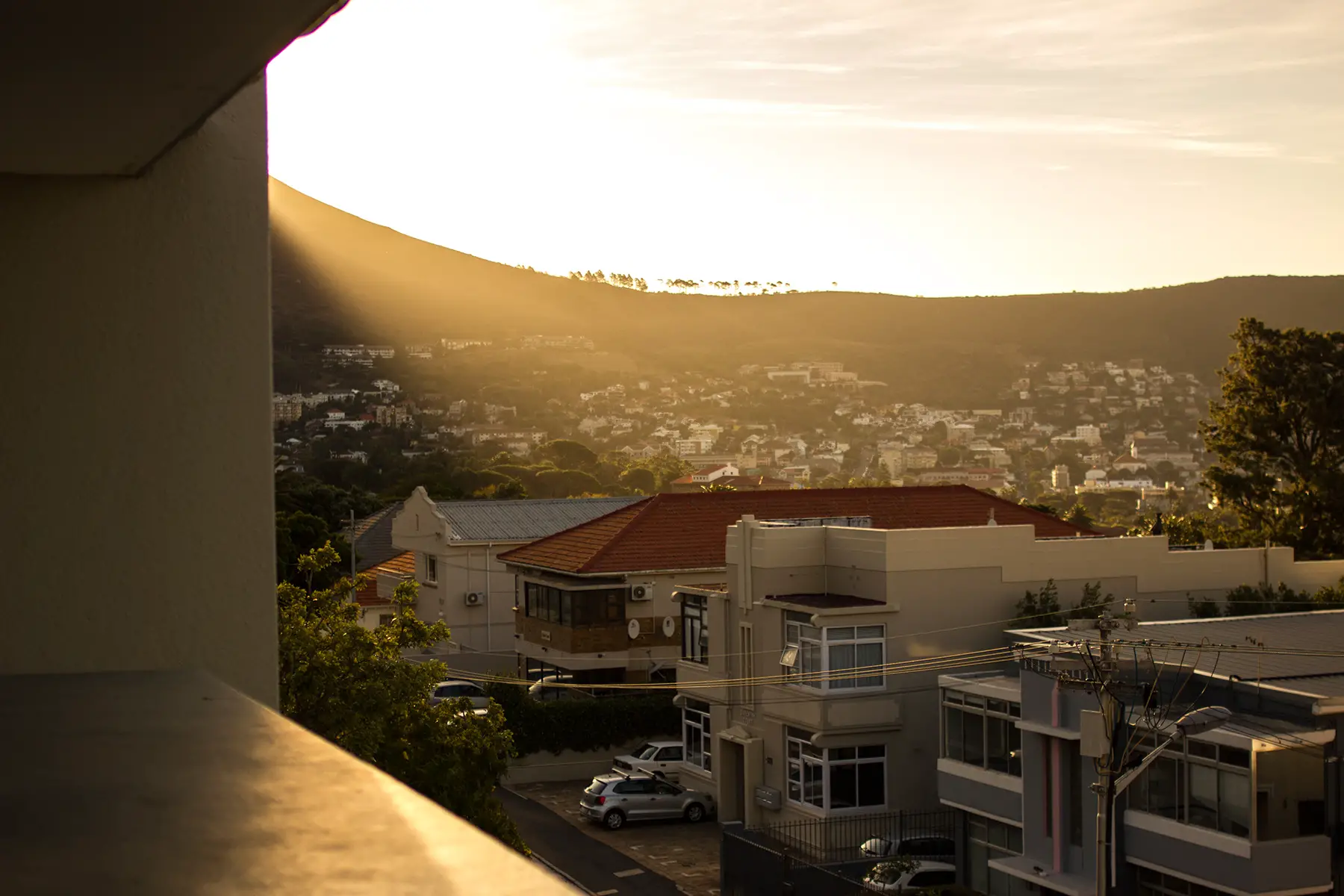
Facilities in the City Bowl
City Bowl reminds many expats of their home city in terms of modern entertainment facilities combined with good quality amenities. Schools such as Tamboerskloof Primary School and St. Cyprian’s School make this a very desirable area for young families.
Here, you will find the city’s trendy bars and nightclubs as well as art galleries and theaters in places such as Gardens and Woodstock. The Old Biscuit Mill in Woodstock is a market area full of designer stores, restaurants, and craft beer outlets. Also worth checking Long Street and Bree Street for shopping and bohemian hangouts, and the Company Gardens heritage site – the oldest garden in South Africa.
Transport in the City Bowl
As this is the central area of the city, you won’t have any problems travelling around. You can find plenty of buses, taxis, Ubers, and trains to other parts of the city and wider South Africa.
Housing in the City Bowl
Property and rental prices in the City Bowl can be steep but on the whole are more affordable than the Atlantic Seaboard. You can find a variety of styles to suit everyone from young single professionals to retirees, from large Victorian houses in Oranjezicht and Tamboerskloof to small studio apartments in the city center. Woodstock is a slightly more affordable option, although prices have increased in recent years. Here, you can find modern industrial design apartments popular with creatives.
Work and business in the City Bowl
The CBD is the business center of Cape Town and one of South Africa’s financial powerhouses. Many of the city’s professionals work in this district, which also houses the Western Cape provincial government and the City of Cape Town municipality. Woodstock, with its abundance of coworking spaces, is favored by entrepreneurs and those who work in media and the arts.
What the City Bowl is best for
Nightlife, culture, and entertainment as well as its great location.
Constantia, Tokai, and Bishopscourt
Around 15km south of the city center, you’ll find these wealthy and peaceful residential suburbs that offer grand housing and a taste of the high life.
The environment in Constantia, Toki, and Bishopscourt
With its numerous vineyards making up the Cape Town wine route, spacious houses, lovely walks, and Table Mountain backdrop, these suburbs are popular with expat families and retirees with a bit of money to spare.
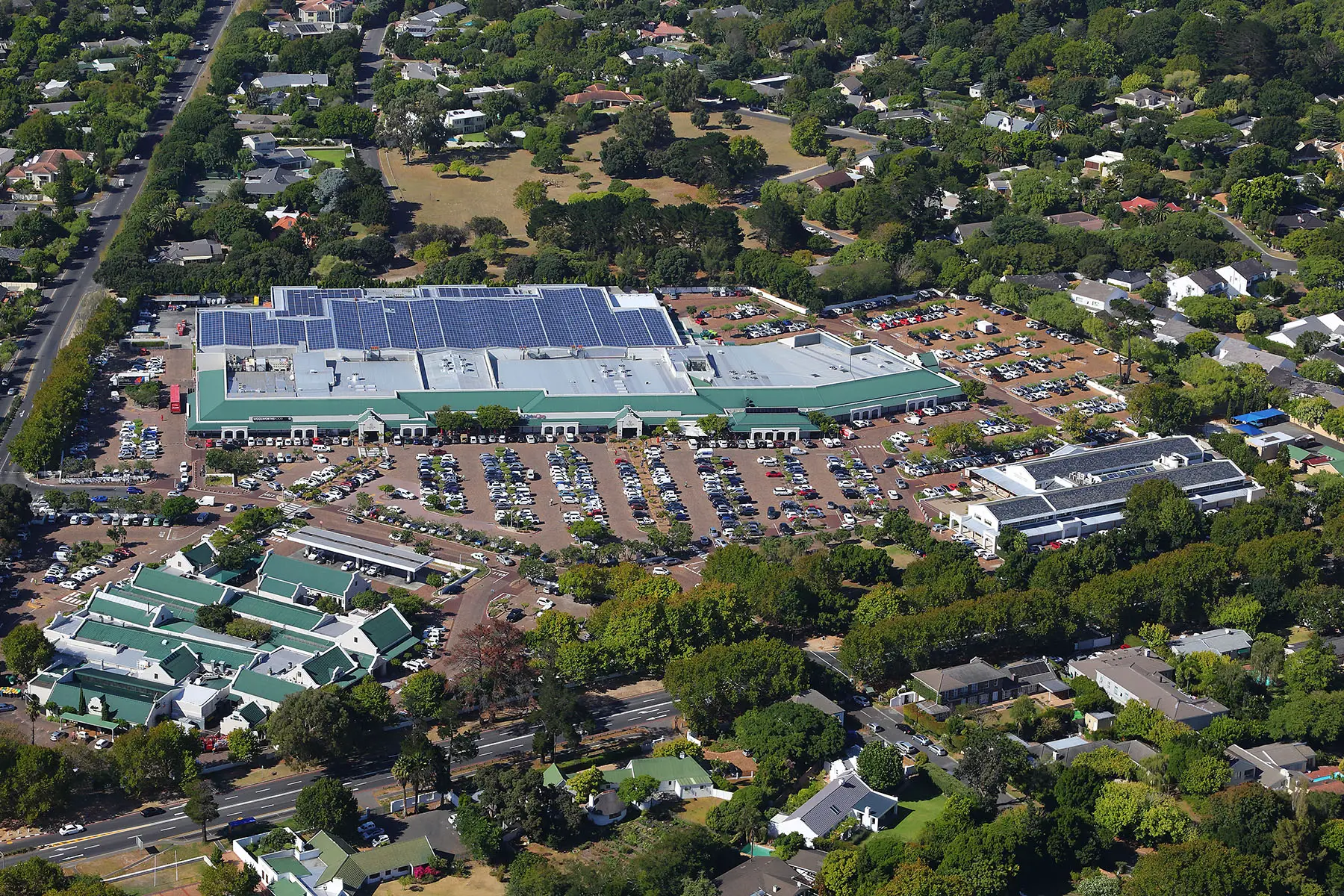
Facilities in Constantia, Tokai, and Bishopscourt
Constantia and Bishopscourt in particular are well known for their vineyards, good restaurants, and top-performing schools – in particular Constantia Waldorf and the American International School of Cape Town. For shopping, dining, and entertainment, you have big complexes such as the Blue Route Mall in Tokai and the plush Constantia Village.
Transport in Constantia, Tokai, and Bishopscourt
The city center is a 25-minute drive away from these suburbs so the peacefulness and scenery is offset slightly by frustratingly long journeys if you travel during peak times. The MyCiTi bus service does cover these zones, though, and there are Uber, taxi and cycle options too.
Housing in Constantia, Tokai, and Bishopscourt
The predominant type of housing in these suburbs is large gated garden houses with big lawns. Perfect for bringing up a big family in, but they can set you back a bit. A 2015 study found that average property values in Bishopscourt and Constantia are around R10-11 million. Tokai, a slightly more built-up area, is more affordable but still well above the national average house price.
Work and business in Constantia, Tokai, and Bishopscourt
These Cape Town suburbs don’t have quite the levels of industry of the more bustling areas of the city but there are plenty of retail and hospitality jobs going in the hotels and shopping centers. The wine industry is also important here. Professionals who live in the area often commute or, in this day and age, work remotely from home.
What Constantia, Tokai, and Bishopscourt are best for
Classy wine and cuisine along with top quality schools.
Cape Town’s West Coast
To the north of the city around Table Bay, you can find the peaceful west coast neighborhoods of Bloubergstrand, Milnerton, and Tableview. The area is a water sports mecca as well as being a good spot for affordable family-friendly homes.
The environment on the West Coast
While the lifestyle is somewhat quieter than in the Atlantic seaboard neighborhoods, the beaches here are beautiful and considered the best place for surfing in the city. Some of Cape Town’s best nature spots are in these parts, including Milnerton Lagoon, Woodbridge Island, and Rietvlei Nature Reserve. The West Coast is popular with young expat families as well as those who want to explore the great outdoors at a laid-back pace.
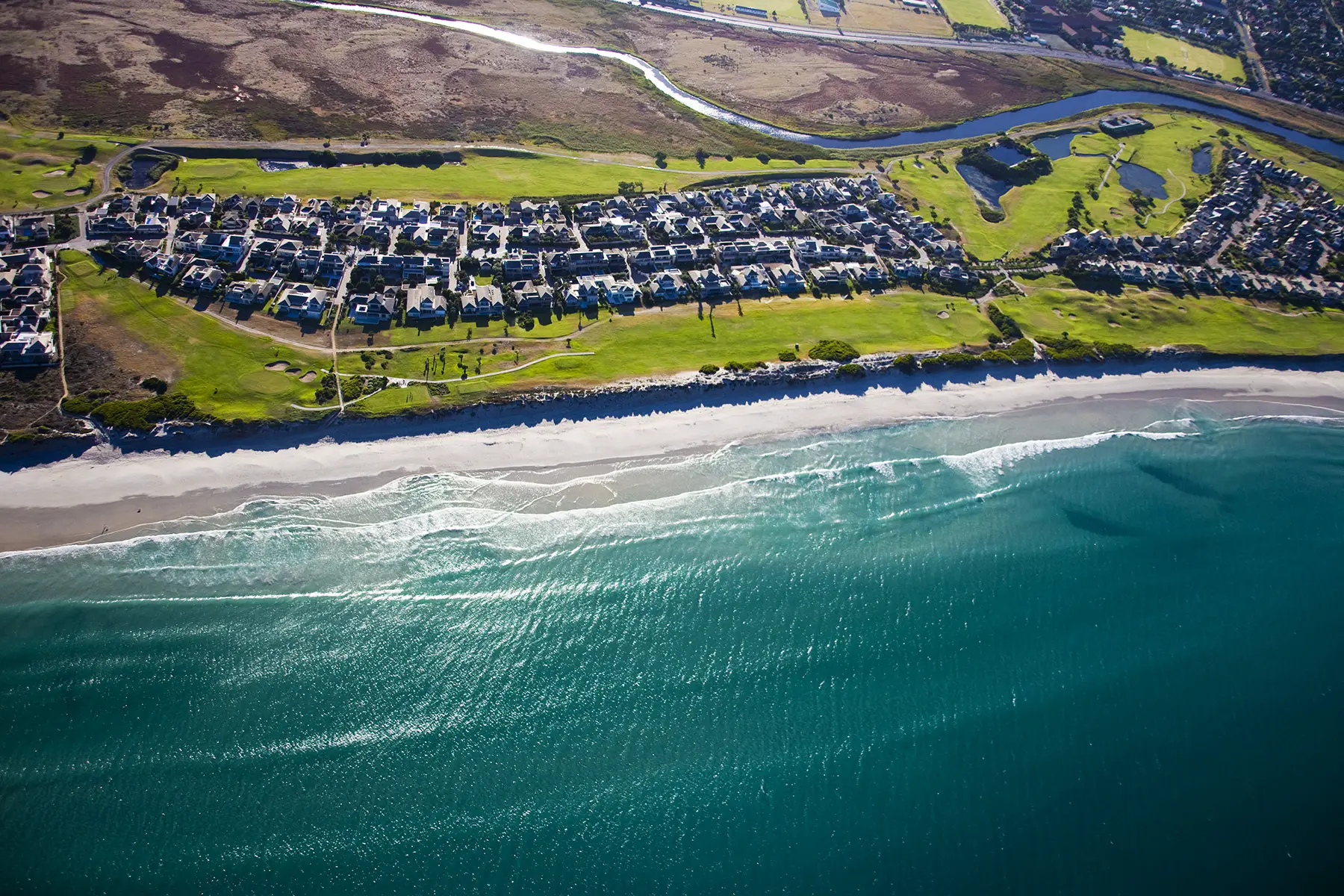
Facilities on the West Coast
The West Coast has plenty of good family-friendly facilities such as good schools and shopping centers with children’s entertainment, including Canal Walk, Bayside Mall, and the Paddocks Shopping Center. Tableview is the most vibrant area with a good selection of pubs, clubs, and restaurants close to the beachfront.
Transport on the West Coast
These suburbs are a bit more remote than some other areas, ranging from between 10–15 kilometers from the city center. However, transport links are good and the MyCiTi bus runs direct services to the CBD.
Housing on the West Coast
You can find an assortment of property types at more affordable prices than in neighborhoods closer to the city center. These include beachfront apartments for those wanting to be close to the water sports action and freestanding homes for families. Tableview is noted as a particularly affordable area for first-time buyers of South African property.
Work and business on the West Coast
This area is great if you want to start up a business or find a job in water sports or outdoor sports. Retail is also a strong sector. Big employers in Bloubergstrand include Amazon, Vodafone, and the University of Cape Town.
What the West Coast is best for
Famed for its surfing and other water sports, the West Coast is also a great affordable location for young families.
Hout Bay
Located among the beautiful coastline scenery in the southwest, Hout Bay has a distinct seaside holiday town feel to it. It is made up of several neighborhoods and, although consisting of many holiday homes and weekend commuters, has a strong community feel.
The environment in Hout Bay
Hout Bay is teeming with pretty beaches, walking trails, and stunning views. It also has one of the biggest fishing harbors in the Western Cape. The area is on the City Sightseeing blue route which takes in the maginificent Chapman’s Peak Drive. Only a short ride from Hout Bay is Nordhoek (popular with horse lovers) and numerous pretty villages such as Imhoff’s Gift, Kommetjie, Misty Cliffs and Scarborough.
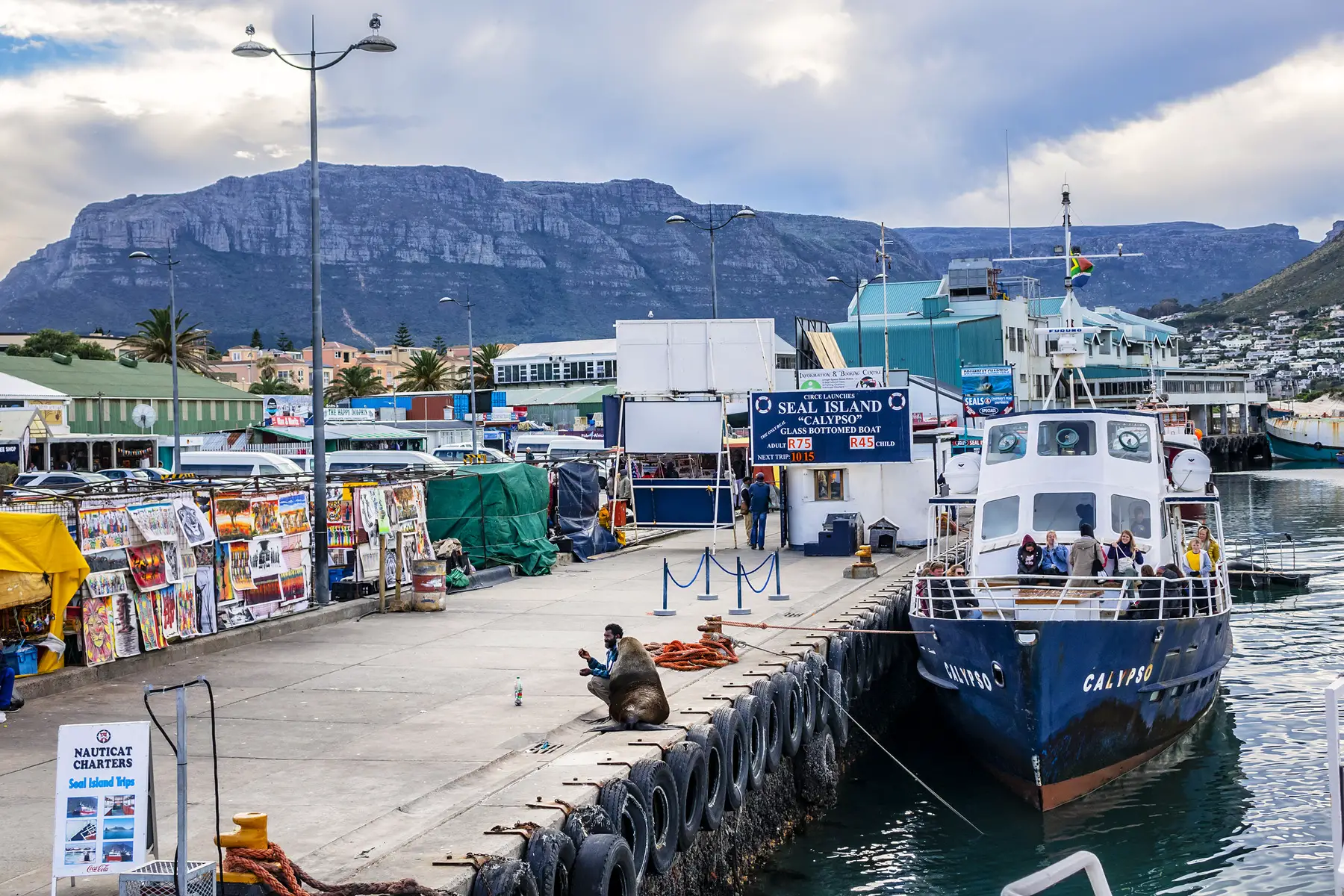
Hout Bay is a popular location for young families with children as well as young professionals. It has a community-driven spirit, many active neighborhood groups and a good international mix of residents.
Facilities in Hout Bay
Although quieter than more central Cape Town areas, Hout Bay has plenty of good facilities and amenities. It boasts some fantastic seafood restaurants, a lively weekend market, bars with live music and water sports including stand-up paddling, canoeing, and surfing. One of the big cultural attractions is Mariner’s Wharf, which has restaurants, marine-focused shops and tourist activities. The Hout Bay International School is a good performing school with a diverse student mix.
Transport in Hout Bay
The area is served by the MyCiTi bus service although journeys into central Cape Town by bus or car can take anything from 30 minutes to two hours, depending on traffic. Those commuting to the city for work during the week should be prepared for long days.
Housing in Hout Bay
Expect to find a mix of good quality properties that are a little bit more affordable than the likes of Camps Bay and Constantia while still offering great views. Hout Bay is a popular place for holiday homes owned by families from other parts of South Africa and even further afield.
Work and business in Hout Bay
While not the most vibrant working area, Hout Bay does boast the busiest working harbor in the Western Cape. The fishing industry still thrives and Chapman’s Peak fisheries have expanded to seafood imports as well as selling local produce. Mariner’s Wharf businesses play a key role in the local economy. Many of the locals, though, are professionals who commute to other more industrious parts of the city.
What Hout Bay is best for
The seaside scenery and community vibe, plus quality restaurants if you’re into your seafood grub.
Cape Town’s northern suburbs
Although a bit of a trek from the center of Cape Town, northern boroughs such as Durbanville, Bellville and Parow are popular with expats moving out of the city as they offer great natural landscapes as well as close proximity to some of the region’s best winelands.
The environment in the northern suburbs
These Cape Town suburbs are more Afrikaans than areas closer to the city although they are becoming more populated with English-speaking expats as development in the area increases. Many families move here as well as retirees who fancy life away from the busier city parts. The northern suburbs are close to the mountains and have some stunning outdoor treks and nature spots such as Tygerberg Nature Reserve and Uitkamp Wetlands.

Facilities in the northern suburbs of Cape Town
These Cape Town suburbs boast many good schools, health facilities and shopping centers. One of the big attractions here is the wine farms which offer activities such as wine tasting. Bellville has the Bellville Velodrome, a 7,800-seater indoor cycling arena which is also one of Cape Town’s main concert venues.
Transport in the northern suburbs
Residents living here are faced with a long commute to the city center as the boroughs are around 20 kilometers out. The area is served by main roads and expressways such as the N1 and M5. MyCiTi and the Metrorail Northern Line also service the area.
Housing in the northern suburbs of Cape Town
These suburbs feature many new builds designed for young families as well as plenty of traditional apartments, townhouses and farmhouses. Prices are slightly more affordable due to the distance from the city center.
Work and business in the northern suburbs
Many residents of these Cape Town suburb areas work in other parts of the city, however a number of big South African companies have their headquarters in the northern district. These include Foschini Group, Pepkor, and Shoprite.
What the northern suburbs of Cape Town are best for
Great open spaces and vineyards aplenty.
The southern suburbs of Cape Town
Around 10km south of the city center around the back of Table Mountain, the southern Cape Town suburbs are more packed with expats than the suburbs in the north. They include both quiet family neighborhoods such as Newlands, Rondebosch and Claremont as well as more vibrant student-populated areas such as Mowbray, Rosebank and Observatory.
The environment in the southern suburbs
These are the leafy suburbs of Cape Town and as such have attracted numerous English-speaking families looking for the quiet life, good amenities and pretty surroundings. The area is great for dog walks and rambling as well as relaxing drives along the Cape peninsula. Spots of note include Table Mountain National Park, which incorporates Newlands Forest, and Kirstenbosch Botanical Garden.
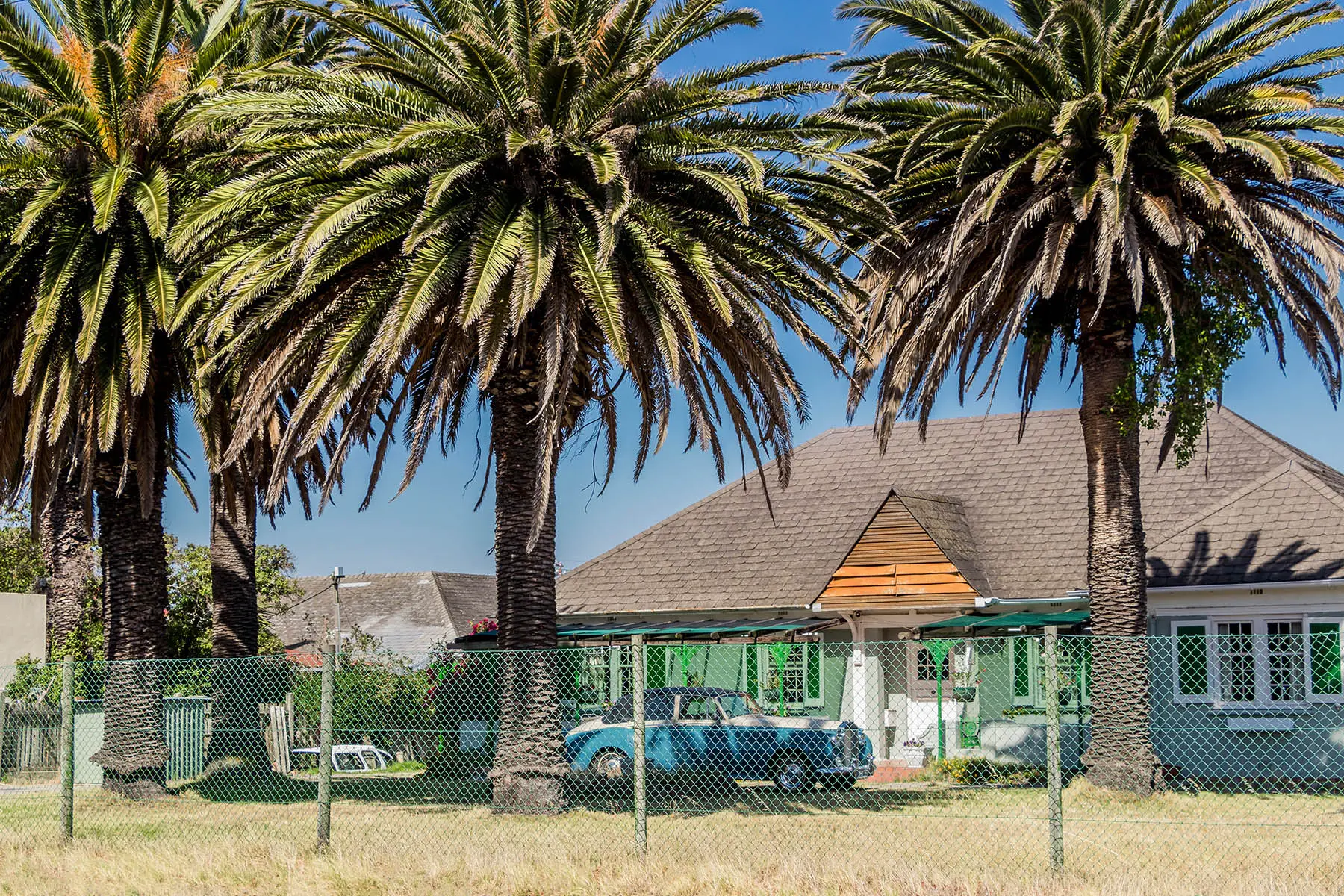
Facilities in the southern suburbs of Cape Town
Educational facilities are a big draw here. The University of Cape Town is located here so it’s no surprise that you can find plenty of student activities including bars and nightclubs. These suburbs also have some of the best private schools in South Africa, which is a reason why many young families relocate here.
You can also find a range of historical buildings, good restaurants, art galleries, and theaters. Newlands and Claremont are well-known for shopping malls, including Cavendish Square, while Observatory caters for a younger crowd with arty shops, boutiques, health food shops, and trendy bars.
Transport in the southern suburbs
These suburbs are well-served by Cape Town bus services as well as the Metrorail Southern Line.
Housing in the southern suburbs of Cape Town
As the population across these boroughs is diverse, it’s no surprise that accommodation options are similarly so. There are many affordable places for students to rent. You can also find some excellent spacious family homes with big gardens here. Prices tend to be more expensive than in the north but not as high as areas such as Atlantic Seaboard. The 50,000-seater Newlands Rugby Stadium is due to be demolished in 2021 to make way for more residential homes.
Work and business in the southern suburbs
Key industries down here include education, tourism, and retail. There has been a proliferation of coworking spaces in the past few years, making the area a bit of a hub for entrepreneurs.
What Cape Town’s southern suburbs are best for
Great schools and good family environment.
False Bay
Sometimes referred to as Cape Town’s deep south, these peaceful communities on the southern peninsula have plenty to offer first-time buyers, pensioners, and surfing fanatics.
The environment in False Bay
On this southern tip, you will find several places that have the vibe of quaint little historical villages. The pace here is very laid back and the beaches are beautiful. Muizenberg is something of a hub for surfers and water sports enthusiasts. Fish Hoek, on the other hand, has attracted many who have chosen to retire to South Africa. The scenery is pretty with many art deco buildings to admire.
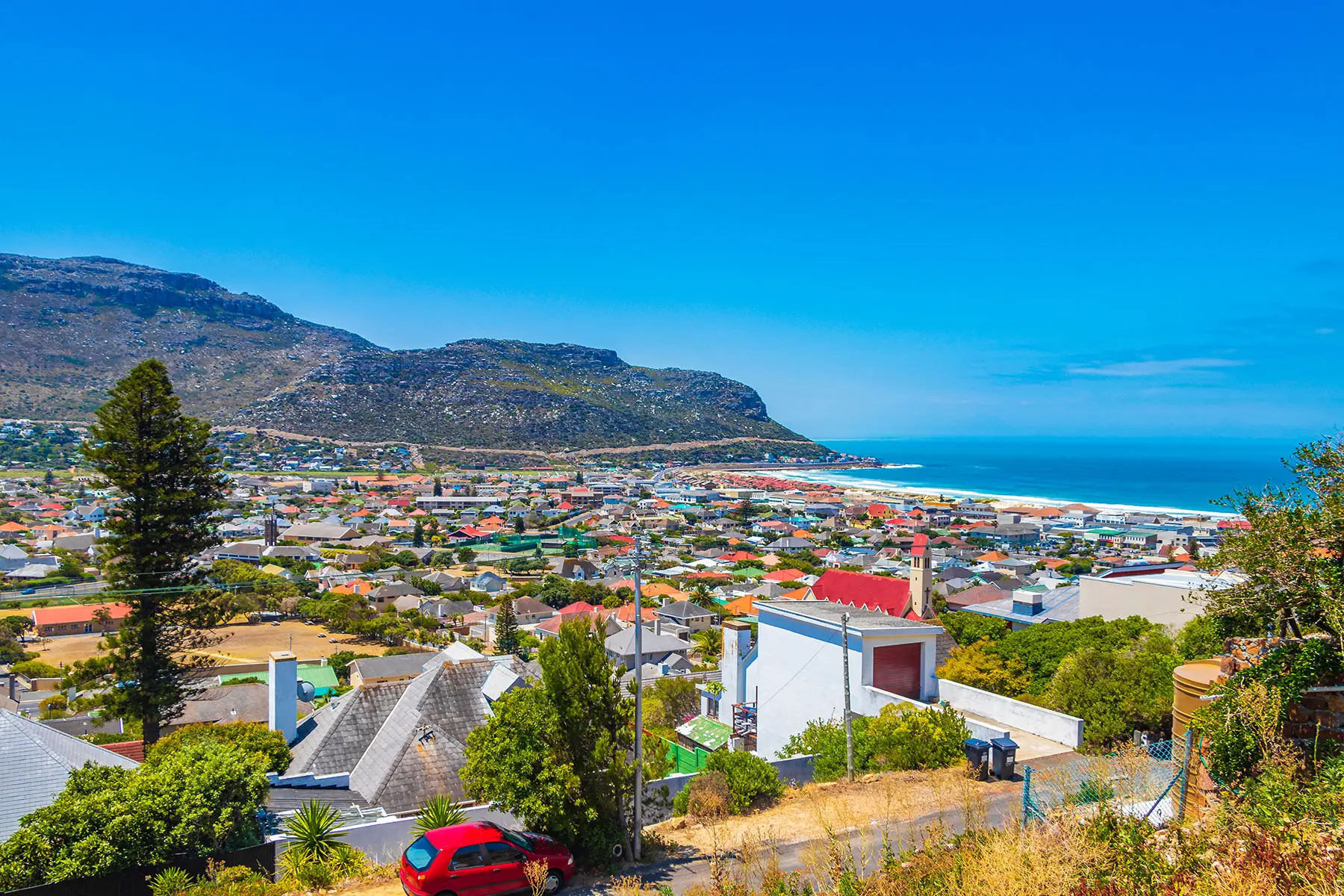
Facilities in False Bay
The area may be quiet but there is plenty to do down here. The seafront has surf shops, nice bars and restaurants. Sports activities on offer range from golf to scuba diving. You can watch live music in the Brass Bell or the Melting Pot, or live drama or dance at the Masque Theater. Local attractions include the South African Naval Museum in Simonstown, and the Casa Labia Cultural Center. The False Bay College is also located here.
Transport in False Bay
These communities are approximately 20 minutes from the city center but if you don’t drive in South Africa you can get buses to the main areas as well as trains to the city from Simonstown.
Housing in False Bay
The False Bay area is one of the more affordable parts of Cape Town so is a good place for first-time buyers and those on a budget. Retirees can also find some good bargains. You can find all types of properties down here including gated developments, apartments, townhouses and cottages.
Work and business in False Bay
People are more likely to move here for a life of leisure than work. However, fishing, tourism, transport, water sports and leisure industries frequently have job opportunities.
What False Bay is best for
The great beaches, golf courses, and gentle pace of life make it ideal for both surf dudes and senior expats.
Where to find accommodation in Cape Town
There are numerous websites and agencies where you can look for property to buy or rent in Cape Town. Try websites such as Private Property or My Property to search for what’s available. Check the South African Yellow Pages for details of local property agents.
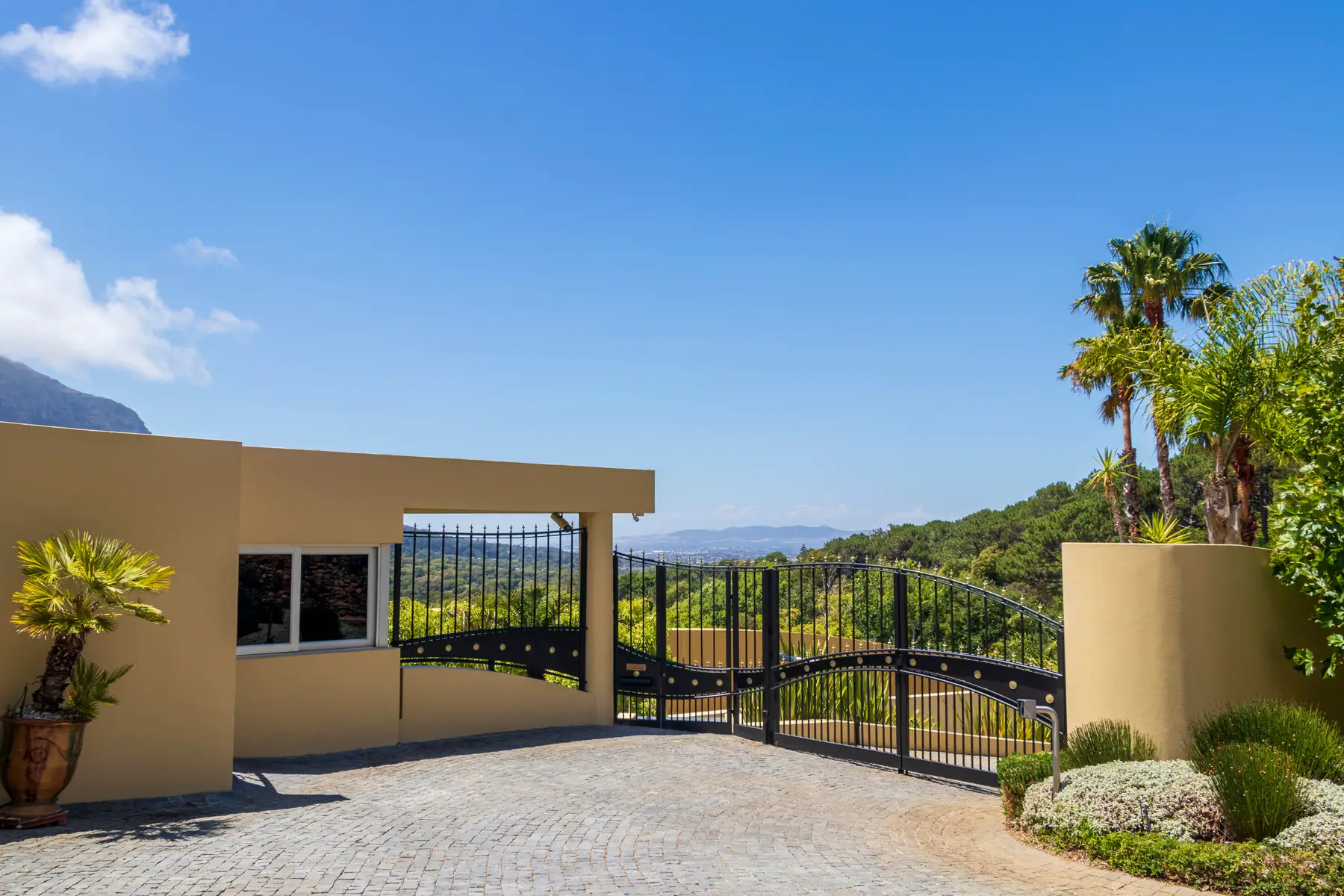
Neighborhoods to avoid in Cape Town
Cape Town has seen an increase in violent crime such as gang crime and murder in recent years. However, this is largely confined to certain neighborhoods which are best avoided. Some of the eastern townships in particular have gained an unwholesome reputation.
PwC released a report in 2018 highlighting that the worst crime areas are in the Cape Flats suburbs in the east of the city as well as Kraaifontein in the northeast. The official government crime stats for 2020 show that the following areas are the worst for crime:
- Cape Town City Centre – highest number of overall crimes, at 15,118 for 2020
- Mitchells Plain – 14,955 crimes including gang crimes, murders, drug crimes and assaults
- Kraaifontein – 10,079 crimes including murder, violent crimes and residential burglaries
- Stellenbosch – town about 50km to the east of Cape Town, with 7,515 crimes in 2020
- Nyanga – township along the N2 highway with a historically high murder rate
- Khayelitsha – fast-growing township on the Cape Flats
- Kleinvlei
As with other cities in South Africa, it’s important to be vigilant when traveling around in Cape Town, especially alone. This means hiding valuables, researching routes before you travel, and avoiding unknown areas, especially when it’s dark. There are other ways you can minimize your chances of being a victim of crime, too. For example, only book taxis through a reputable company and only get in marked cars.
Useful resources
- Official municipal government website
- My Property – website where you can search for homes to rent or buy in Cape Town
- Crime Stats SA – information on crime and safety levels in different Cape Town areas and suburbs



